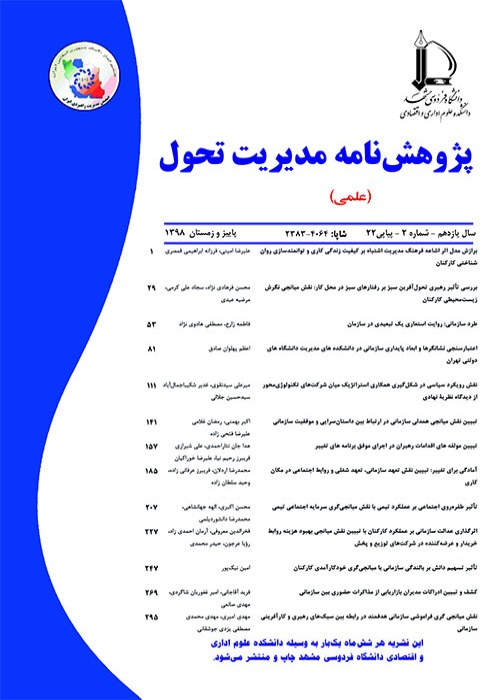Investigating the Relationship between Passive Leadership and Organizational Incivility Moderated by Experienced Incivility
Rudeness, impoliteness, and indecent behaviors, which represent incivility, have become a norm in almost all aspects of modern societies and have been recognized as one of the pervasive antisocial behaviors in the workplace. Behavioral incompatibilities occur when an employee treats other employees with counterproductive behaviors, which reflects the level of workplace incivility among the staff. However, experienced incivility is a level of incivility experienced by employees in the face of their colleagues. Over the past few decades, special attention has been paid to leadership and it has been recognized as the most important factor for organizational success/failure.
THEORETICAL FOUNDATION OF RESEARCH:
Passive or non-transactional leadership refers to leaders’ refraining from taking action and lack of directing the followers. The source of organizational incivility is managers, colleagues, and customers. According to the social interaction theory, the presence of a passive leader may intensify the effect of experienced compatibility on behavioral compatibility. Employees working for passive leaders deal with more of these behaviors from their colleagues in case of a positive relationship between passive leadership and behavioral incompatibility. Scholars believe that almost all employees have had a similar reaction to the experienced incivility. Working for a passive leader increases the chance of workplace incivility, which might increase this type of behavior in the employee.
This research was an applied study in terms of purpose, s descriptive field study regarding the type of research, and a correlational study in terms of the relationship between variables. The statistical population included all the staff of Omran Kar Company with a total number of 162 in 2017, all of whom were studied by census sampling. Data was collected using Avolio and Bass’s (1990) passive leadership questionnaire, Blau and Andersson’s (2005) organizational incivility questionnaire, and Cortina et al.’s (2001) workplace incivility scale questionnaire. In the end, 154 well-qualified questionnaires were analyzed, and the validity and reliability of results confirmed by content and convergent validity and Cronbach’s alpha coefficients.
According to the one-sample t-test results, t-values of 17.549, 13.278, and 12.823 respectively for passive leadership, organizational incivility, and experienced incivility showed that their mean values were significantly different from three. Overall, for all three variables, the mean value was above moderate. The effect of passive leadership on organizational incivility (t=2.43, r=0.57) and experienced incivility (t=4.84, r=0.74) were statistically significant. The effect of experienced incivility on organizational incivility (t=3.32, r=0.66) was also confirmed. Accordingly, in Omran Kar Co., passive leadership had a significant indirect effect on organizational incivility through the mediating role of employees’ experienced incivility.
DISCUSSION & RECOMMENDATIONS:
To fail in actively depicting positive social norms and preventive measures required for controlling negative behaviors can increase informal behaviors in the workplace, which leads to incivility. Situational factors that lead to informal behaviors, such as managerial methods and policies, increase workplace insecurity. According to the social interaction framework, situational factors increase the repetition of uncivilized behavioral incompatibility. Managers who actively participate in the tasks assigned to their workers are forced to solve the problems occurring due to negative and uncivilized behaviors of employees, which decreases this type of behavioral incompatibilities. In contrast, a leader who fails to intervene and punish the person at fault cannot reinforce the correct behavior implicitly indicating that unfavorable behavior is acceptable, which increases incivility. Therefore, the leadership style exhibited by managers can affect incompatibility in the workplace as an important factor.
- حق عضویت دریافتی صرف حمایت از نشریات عضو و نگهداری، تکمیل و توسعه مگیران میشود.
- پرداخت حق اشتراک و دانلود مقالات اجازه بازنشر آن در سایر رسانههای چاپی و دیجیتال را به کاربر نمیدهد.


